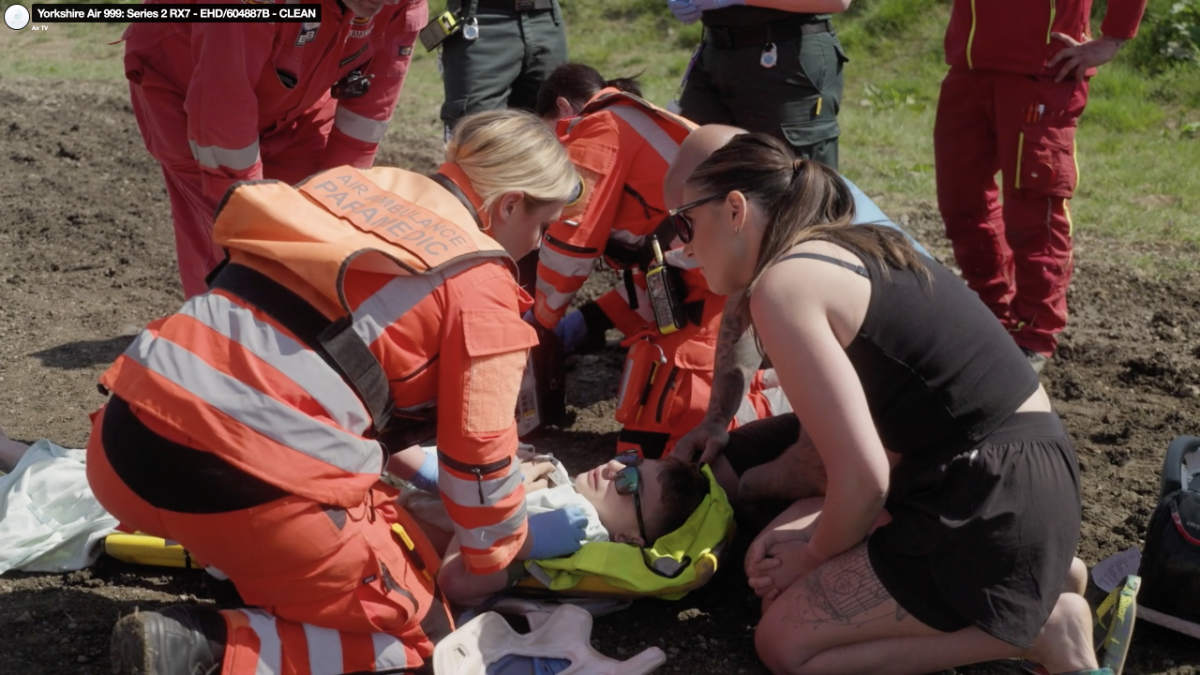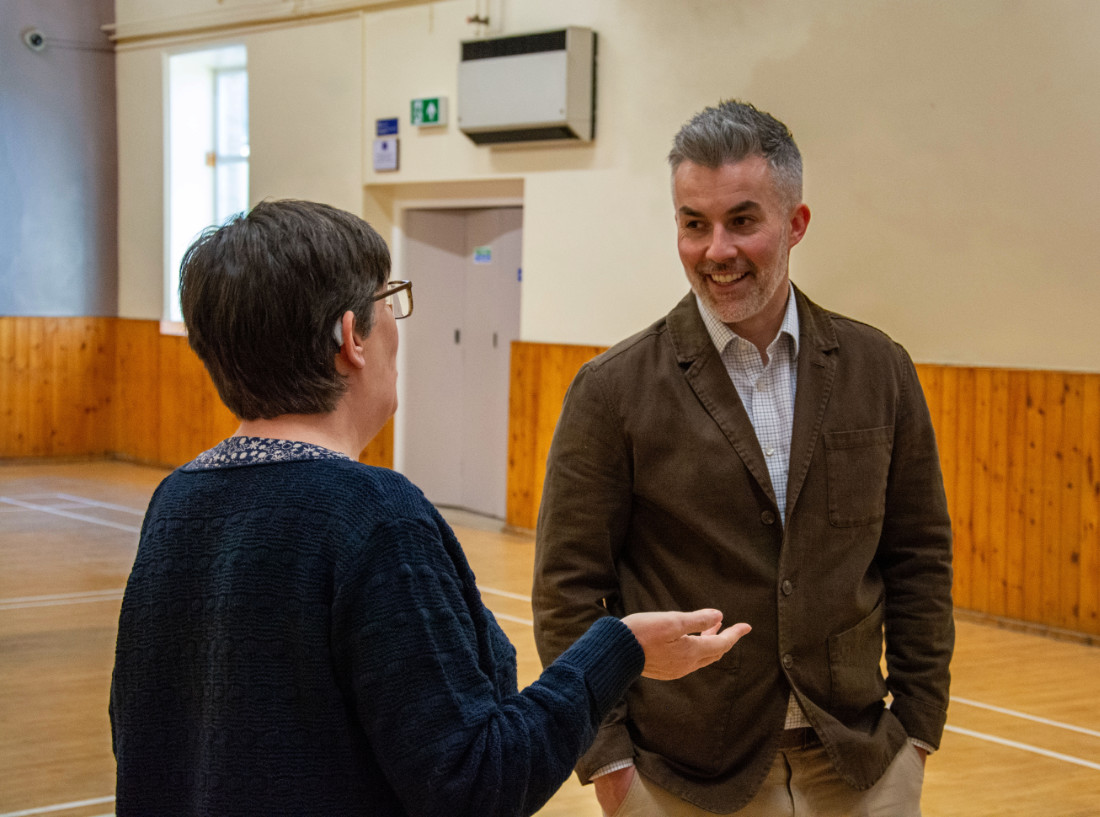Nina Franklin the president of the National Union of Teachers this morning in Harrogate, addressed the NUT Annual Conference (23 April 2011), this is the full text of her speech:
I would like to start by welcoming a Coalition Government Report called Social Insurance and Allied Services. This report aims to tackle five threats to society: want, ignorance, disease, squalor and idleness, and it means to do it using two simple, overriding principles: universality and comprehensiveness. Everyone is covered from the cradle to the grave, irrespective of wealth.
I said I would like to welcome the report but it’s a bit late: it was published in December 1942 and the coalition was Winston Churchill’s wartime National Government.
It is, of course, the famous Beveridge Report, written when Britain was losing the Second World War but laying the foundations of the Welfare State, which would make British society worth fighting for. It was enacted by successive governments between 1944 and 1948.
Want (or poverty as we would call it now) was tackled by a comprehensive National Insurance scheme and welfare benefits;
ignorance was tackled by the 1944 Education Act, providing free primary and secondary education for all;
disease was tackled by the creation of the National Health Service;
squalor was tackled by a massive programme of council house building;
and idleness was tackled by a programme of the nationalisation of key industries and economic reconstruction leading to full employment.
All that was a long time ago but it was the foundation of the secure society in which most of us were brought up. And what of William Beveridge, the author of the Report, who provided the intellectual foundation of the Welfare State? A communist, a Marxist, a socialist?
In fact he was a member of the Liberal Party.
How times have changed. We are almost one year into the Coalition Government. Everywhere the principles that have provided the social foundation for our society are under attack:
benefits are being cut, reintroducing absolute poverty into this country;
the National Health Service to all intents and purposes is being abolished;
social housing is being threatened;
and the generation of children we are teaching now will be forced into idleness because of mass unemployment.
For me the benefits of the Welfare State started by the Beveridge Report have led to me standing before you today as your National President. I grew up in the 50s and 60s, my dad was a factory worker and my mum worked on the meat counter in David Greggs. I was the first one in my family to have any form of higher education. I went to college with a full grant from the state. It was about £365 in 1969 – a pound a day! A few years back I had a serious and life threatening illness and was treated completely free of charge and to the highest of standards by the National Health Service. I don’t want to see all that disappear for others due to Government cuts.
If the Coalition Government has its way, only the rich, and the very rich, will prosper.
Who voted for this? How many members of the Liberal Democrat Party signed up for this when they joined it? How did we manage to so grossly underestimate the vindictive class warriors of the Conservative Party? And before the Labour Party gets smug, why did they pave the way for this crisis by giving free rein to the greedy bankers and promoting the notion that public services were up for sale?
Now, at the 2011 Annual Conference of the National Union of Teachers, we face some of the greatest challenges in this Union’s long history.
I don’t want to go into too much detail about every aspect of the issues we face – regrettably, it’s obvious, but here’s an outline.
Where shall we start? Well, there’s pensions – our so called wonderful, ‘gold-plated’ pensions – which will allow us public-sector parasites to retire at the age of 30 and live the rest of our lives, which will go on at least until we are at least 100, in unbridled luxury, while everyone in the private sector works ‘til they’re 90 and then starves to death.
For all the time I have been in teaching, we have had to accept a salary award which was less than we demanded and often below the increase in the cost of living. At the moment we are enjoying no salary increase at all. The reason given was that teachers had a good pension scheme which was deferred salary and compensation for under-remuneration while we were working.
Welcome to a world where we have two choices on our pension. We can either accept a low standard of living, while we are working, because a large chunk of our salary goes on a devalued pension scheme or we wait for poverty in our old age because we couldn’t afford our teachers’ pension in the first place.
We will also have to wait longer for our pension because we are expected to work until we are 68. Does anyone who has any knowledge of a teacher’s job see this as a realistic prospect? Do they not realise how much time and energy it takes to teach and how exhausting good teaching is?
Then there is the pay. Some simple statistics, Conference: rate of inflation for 2011 – 4-5%; teachers’ pay increase – 0%. Rate of inflation for 2012 – 4-5%; teachers’ pay increase – 0%; increase in pension contributions – 3.4%. Total pay cut – over 10%.
Next on the list is the privatisation of schools – also known as the academies and Free Schools programme. Much will be said during this conference on what academies and Free Schools really mean. In Bristol we have a longer experience than most of academies because many of our secondary schools converted to academy status under Labour’s academy programme. At least they got new buildings, even though they were PFI and are already starting to get tatty. Not so now. There is not even the money to build new schools.
The biggest lie about academies is that they give schools “freedom”. The opposite is the case. Academies and Free Schools will not be able to operate independently for very long. We know the Secretary of State prefers the Swedish model and is ‘relaxed’ about the possibility of schools being run in the future at a profit.
Head teachers and governors will lose their freedom to self-perpetuating boards of trustees. Above all, parents and the community which schools serve will lose the last vestige of democratic accountability that schools have. Where does a parent go if he or she has a complaint against a school that the governors will not deal with? They can’t go to their elected local councillor anymore – they will have to go to Whitehall and what chance have they of redress there?
And that’s the other reason for academies and especially Free Schools – sheer, unadulterated, good old-fashioned snobbery. In Bristol, if plans to open a Free School go ahead in the most affluent area of our city, it is quite possible that at least one of the nearby state community schools will close.
Finally, there are the cuts. Many schools and Local Authorities face huge cuts to their budgets. Already teachers and support staff have been made redundant and there will be many more to come. This will impact massively on the education of our children and also on the workload of teachers.
In Wales, schools are suffering an even greater detriment. Last year, schools in Wales had £527 less to spend per pupil than English schools. The new First Minister Carwyn Jones promised to address the issue when he took office and so the funding gap this year is… £604! We know that schools are underfunded throughout the UK and that this is set to get much worse. In Wales, school communities are really struggling. Hundreds of rural primary schools and sixth forms are threatened with closure and many teachers are facing redundancy.
NUT Cymru has led the campaign against the funding gap and will continue to fight for Welsh education. No amount of good policies on assessment and early years will make up for oversized classes, crumbling buildings and young people having to travel miles to get an education.
A few weeks ago there was a debate in Bristol between our local Anti-Cuts Alliance and a Conservative MP. The basic argument against the proposition that we could get rid of the deficit by collecting all the taxes owed was that, if we did, all the rich people would leave the country.
So what was our response to that? Bye! On your way out leave all your billions in evaded, avoided and simply unpaid taxes behind you.
There are so many other causes for concern – Ofsted and SATs, for example. Conference, we need a life raft – something to enable us to get out of this awful situation. Where is it? It is here, it is us, it is the National Union of Teachers.
Nothing has to happen; nothing is inevitable. Bad things happen because people let them happen. The attack on public services is a bad thing; people did not vote for it; it must and can be stopped and it is up to us to stop it.
There is hope. Firstly, there is the growth of the anti-cuts movement. Nearly every town in this country has an anti-cuts group made up of trade unions and community activists. In Bristol, the NUT was instrumental in setting up one of the first and what is now one of the biggest anti-cuts groups in the country. We have been able to put between 2,000 and 3,000 people onto the streets of Bristol twice in the space of four months and we have a huge network of supporters and activists. Branches representing almost all the public sector unions are affiliated to us as well as the Trades Council. We are organised into campaign groups covering areas such as health, education and social care and into a growing number of local community groups.
This alliance of all of those who are willing to campaign actively against the cuts is absolutely essential, not only to win hearts and minds but also to co-ordinate action with other unions, through the TUC, to counter the big lie of the Coalition Government that cuts are inevitable. If there is an anti-cuts group in your locality, support it. If there isn’t, set one up.
The TUC-organised March for the Alternative last month was a brilliant day with half a million people taking to the streets of London to protest peacefully against the cuts. The NUT turnout was impressive to say the least with members arriving from all over the England and Wales. It was a clear demonstration that teachers, public sector workers and their families will not stand by and see their livelihoods and their communities destroyed by the Government’s unnecessary cuts agenda.
Another beacon of hope is the eruption of student protest that took place before Christmas. Thousands of young people across the country took to the streets on two occasions. I had great pleasure in speaking at one of the demonstrations in London. What cheered me up hugely were the improvised placards they were carrying; felt-tip on pieces of cardboard. It wasn’t just the economic questions of tuition fees or the loss of the Education Maintenance Allowance; their slogans, often very witty, demonstrated a political questioning of the purpose of education that hasn’t been seen, perhaps, since the 1960s.
One of the few positive features of teaching in recent years is to see the huge growth in the numbers staying in education beyond the age of 16, achieving better qualifications, going on to higher education and achieving their potential. Despite the Government being forced to do a partial U turn on the Educational Maintenance Allowance they cannot disguise the fact that it is still slashing funding for it by two-thirds. This means a much smaller number of young people will get help from this vital allowance. To many of these students the £30 a week EMA makes all the difference between staying on or having to leave. The prospect of entering the world of work carrying a debt of possibly £27,000 in tuition fees is a major disincentive. All the good work that we as teachers have done encouraging students to stay on has been undone by a disgraceful reneging on an election promise by the Liberal Democrats.
This alienation of young people is important. One of the things we can be proud of is that whenever there is a march by the racist English Defence League there are nearly always NUT banners on the counter-demonstration. A huge danger, in a period of mass unemployment, growing poverty and an assault on benefits and the welfare state, is that a generation of alienated youth take the easy option of scapegoating, so that all the anger and frustration that you see on the faces of EDL supporters is turned against their fellow workers. The explicit Islamophobia of the EDL and their general racism must be countered.
The NUT takes the lead in anti-racist teaching both on our own, such as the important conference on Islamophobia organised by the South Gloucester Division of the NUT, and with other organisations such as Show Racism the Red Card who have produced excellent materials on Islamophobia. I was pleased to speak at a conference in Camden to launch and support those materials.
One of the earliest projects I was involved in as an NUT member was the production of a booklet called After the Fire in 1980. This was produced by what was then Avon NUT in response to the St Paul’s uprisings in Bristol, the first of the urban rebellions against Margaret Thatcher.
It was one of the first programmes for both an anti-racist and an inclusive curriculum and I am immensely proud of it. Nationally, about the same time, the Union published Racism – Prejudice Plus Power, and later Anti-Racist Curriculum Guidelines – both absolutely groundbreaking documents, which reflect our longstanding commitment to tackling racism. We have continued that tradition, Conference, with our roundtable work on Born to be Great, our evidence to the Stephen Lawrence Enquiry, our sponsorship of the Anthony Walker Memorial Lecture and our CPD courses on raising cultural awareness.
My particular interest is in the work that needs to be done to raise the achievement of African Caribbean boys and my particular concern is the degree to which black teachers are over-represented in disciplinary and capability proceedings. I hope we will be able to do some more groundbreaking work to integrate into the curriculum the achievements of many more of our black heroes and sheroes. Not only people like Paul Bogle and Nanny of the Maroons, but also our own local black achievers. People like Paul Stephenson, who led the Bristol bus boycott. Most of all, we must remember the countless thousands of wonderful black parents who suffered racism in the 50s but overcame all of that to support a new generation of heroes and sheroes. Of that generation, my inspiration and the cornerstone of our family has been Mrs Linnette Gray, and I owe so much to her for her support, help and kindness, and also for being my mum. I also have to pay tribute to my own hero and sheroes, my children, Grace, Amber and Justin and for their years of dedication to the NUT by giving up every Easter since they were born to join us at NUT conference!
We are going to have to take action to defend our jobs, our conditions of service and above all, any concept of a properly resourced, comprehensive education system democratically accountable to the local community, allowing the opportunity for all to achieve what they can. We have no choice. Not to do so would be a betrayal of our members and a betrayal of everything this Union has ever stood for.
However, we cannot snap our fingers and assume that the members will rush to the barricades. An awful lot of work has to be done. Lots of very worthy resolutions will be passed here in the next few days. A huge effort will go into making sure these resolutions say the right things, but saying the right thing isn’t the problem – it’s doing it that counts.
Colleagues, if all you are going to do is stick your hands up at the right time and then go home thinking that’s a job well done then we might as well stop the Conference now. Resolutions are words on paper. They are of no use whatsoever unless they become actions in schools. We need commitment, we need activity, we need inspiration.
Numbers are not our problem. The Union continues to grow, particularly in schools and areas where we make a stand to defend our members. What we need to develop is our pool of activists:
members who are willing to take on the increasingly essential role of School Representative;
members who are willing to lead campaigns;
members with drive and verve;
and members who will join our growing cohort of young teacher activists.
There isn’t a magic wand that will do all this. It’s damned hard work, but it’s work that has be done.
At this point, contemplating the lonely hours you spend stuffing envelopes to get a dozen people to a meeting, you may despair and give up. Don’t. There is hope – when events move they move very rapidly. Look at the student movement last year, but above all look to Tunisia, Egypt, and other parts of the Middle East where people have suddenly risen up after years of oppression to topple dictators.
One of the things I have been able to do as a National Officer is to go on delegations abroad. It has allowed me to meet some wonderful people in Palestine and in Latin America, trade unionists who carry on in the face of terrible adversity. Part of the purpose of our international work is for us to learn from other people’s struggles and to be inspired by them.
We do not face a brutal dictatorship, but we do face the extinction of a set of values about public service. A guarantee of a minimum level of security for the sick, the elderly and the poor, of the last vestiges of comprehensive education, and the attack on free trade unionism if anti-union laws are tightened ever further. We can and must face the challenge. I do detect a change of mood, a realisation amongst members that this is the biggest challenge faced in a number of years. I have spent time going to countless school groups and division meetings and time after time members are incensed about cuts to their pensions and the Government’s academy programme.
When we take action that too has to be based on members’ activity. I took part in the strikes of the 1980s, firstly against Thatcher’s cuts and then in the salaries campaign. I learned a lot from that period.
Colleagues, it is all a question of confidence. Teachers know that what is happening is wrong. They are committed public servants but fear for the future. They want the attack on our service stopped but they are overwhelmed by workload, by debt, by over-bearing managements and performance regimes, by worry about their old-age, about getting their own kids into jobs or through university, by the isolation which is the nature of the job of teaching – especially since the demise in many schools of the staffroom as an institution – and by the sheer awfulness of the crisis we are in.
However, they are prepared to fight. If they are given the lead and if they are given the confidence and if they do not feel that they are alone, they will fight. I know; I feel it in my bones as I talk to our members.
It is the duty of this Conference, of myself, of Christine and the other national and regional officers, of the Executive, of local association officers, of us all to give the lead and to engender confidence to take on this challenge.
It is also our duty to try to achieve a united fight by all trade unions. Here we are, facing the most serious challenge to our profession ever, and what have we got? Three unions representing classroom teachers and competing for members does not make sense. What on earth do people in the staffroom think about the alphabet soup of teacher trade unions – NUT, NASUWT, ATL? How many times have you heard “Why can’t there be just one union? Why can’t we all work together?” The NUT is proud to be the only teachers’ union campaigning consistently for one union for all teachers.
At school level, and more often than not at local level, we do. So why can’t we have one national union? What is this huge matter of principle that divides us? In recent years we have seen the amalgamation of large unions taking place. So if they can do it why can’t we?
This crisis that we face is not inevitable. To say that it is, is a damnable and outright lie. We live in a rich country but that wealth is concentrated in the hands of a small elite. It is their greed and their stupidity which got us into this mess in the first place and while the rest of us face wage freezes, inflation, redundancy and cuts to benefits and services, they grow richer on bonuses and tax-dodging. The figures are there for all to see:
Last year, the wealth of the 1000 people on the Sunday Times Rich List totalled £335 billion, a 30% increase on 2009. They could pay off the entire deficit of £150 billion and still have £185 million left – each!
£25 billion is lost to the Treasury each year through tax avoidance, which is legal.
£70 billion is lost through tax evasion, which is illegal.
£28 billion is simply lost through tax unpaid.
That gives us £123 billion in lost tax.
A Robin Hood Tax of just 0.05% on financial transactions by banks would raise £20 billion a year.
Scrapping the useless Trident and ending our involvement in futile and brutal wars would save £136 billion
Deficit? What deficit? And what if there was? The deficits of the USA, Canada, France, Germany and Japan are all bigger than ours; the deficit after the Second World War was a much higher proportion of the economy than it is now but Britain went on, at that time, to create the Welfare State and rebuild its industrial infrastructure.
I conclude with a thought and a quote. Cameron, Clegg and the right-wing media may dismiss us trade unionists as dinosaurs. Well, the dinosaurs ruled the earth for 160 million years. They were successful creatures well adapted to their environment and it took a giant asteroid from outer space to wipe them out. Mr Cameron, you are not in the same league as a giant asteroid from outer space.
The quote, inevitably, for all of those who know me, is from Bob Marley, that won’t come as any surprise. So Conference, let this be the year when we all join together to ‘get up, stand up, stand up for our rights’ and the year when we ‘get up, stand up and don’t give up the fight.’






